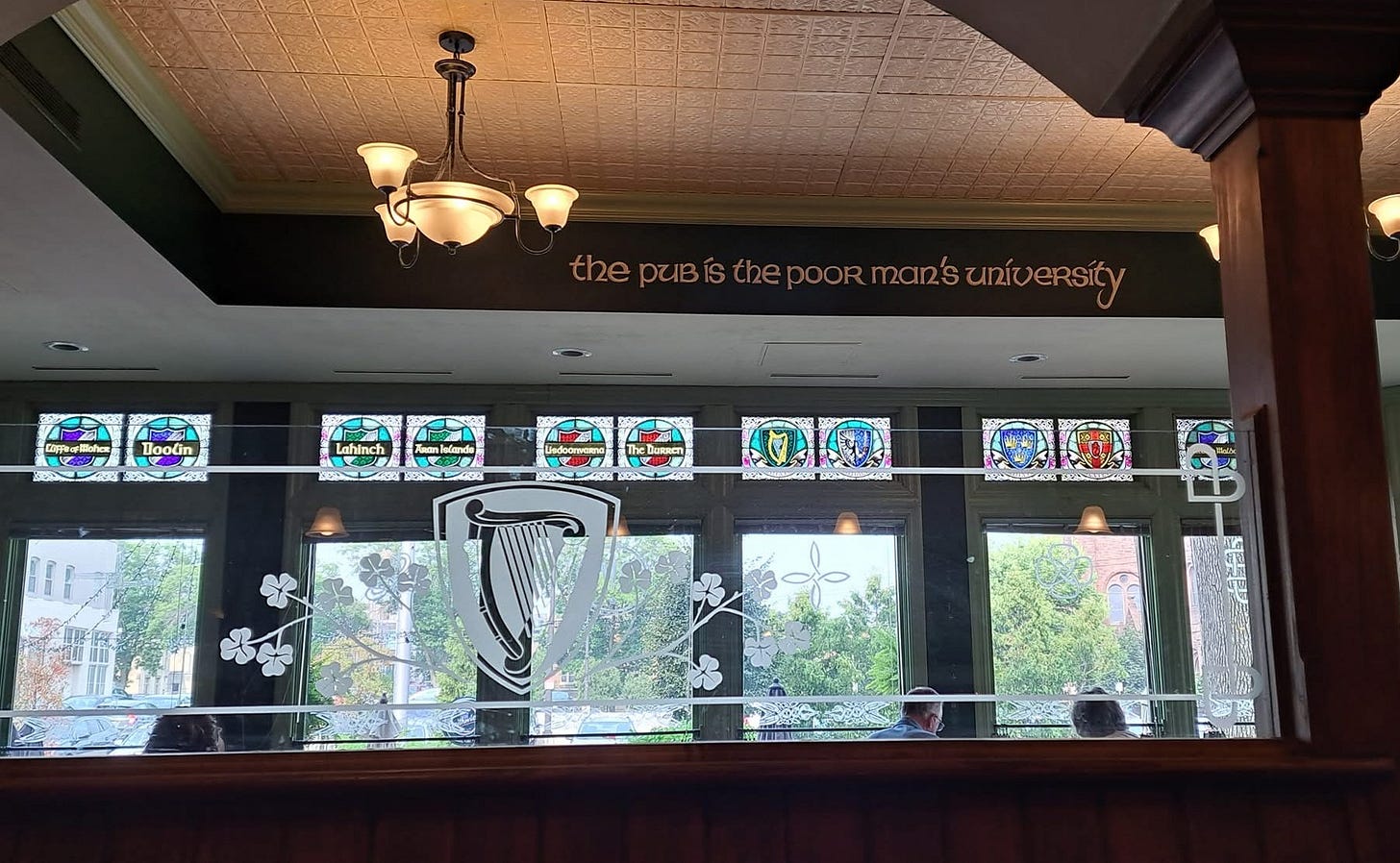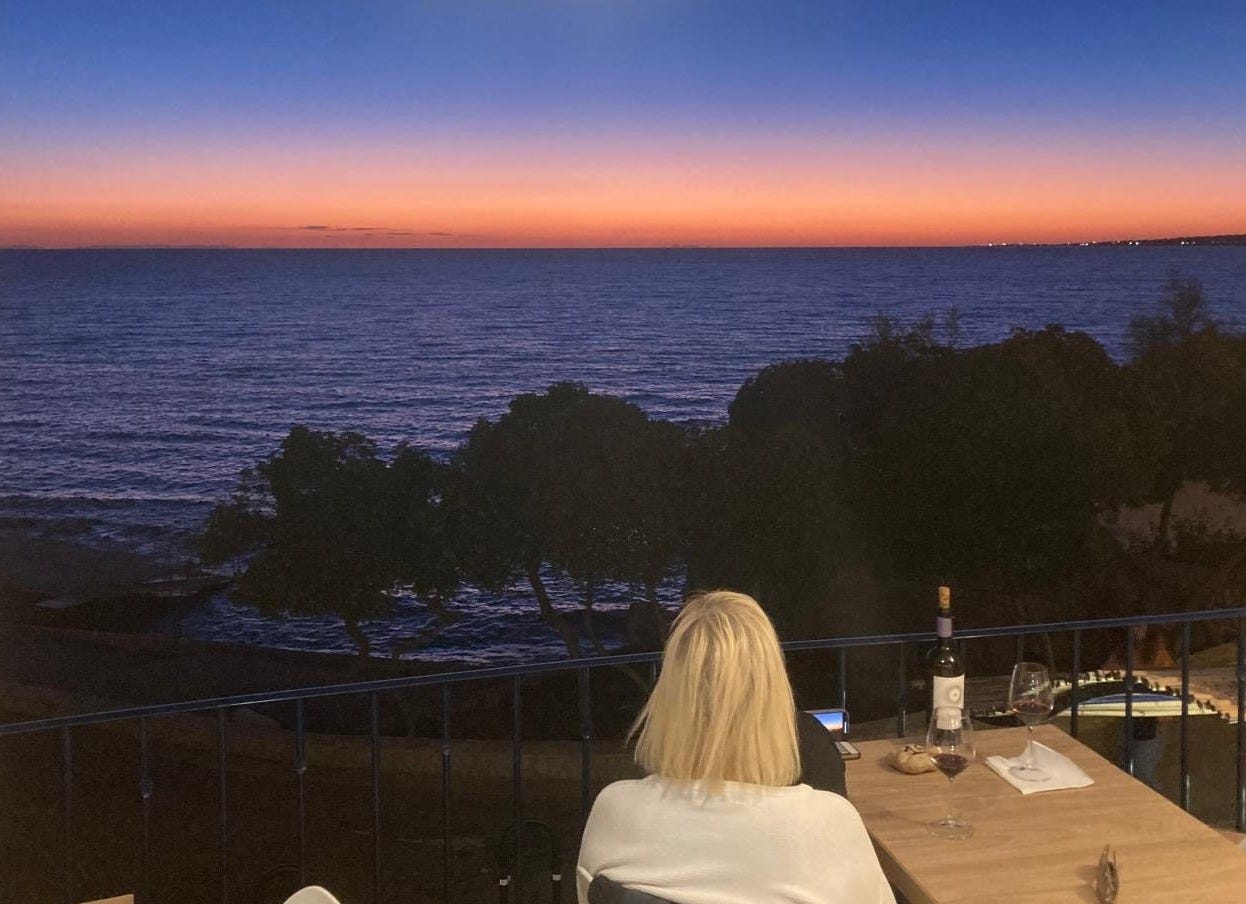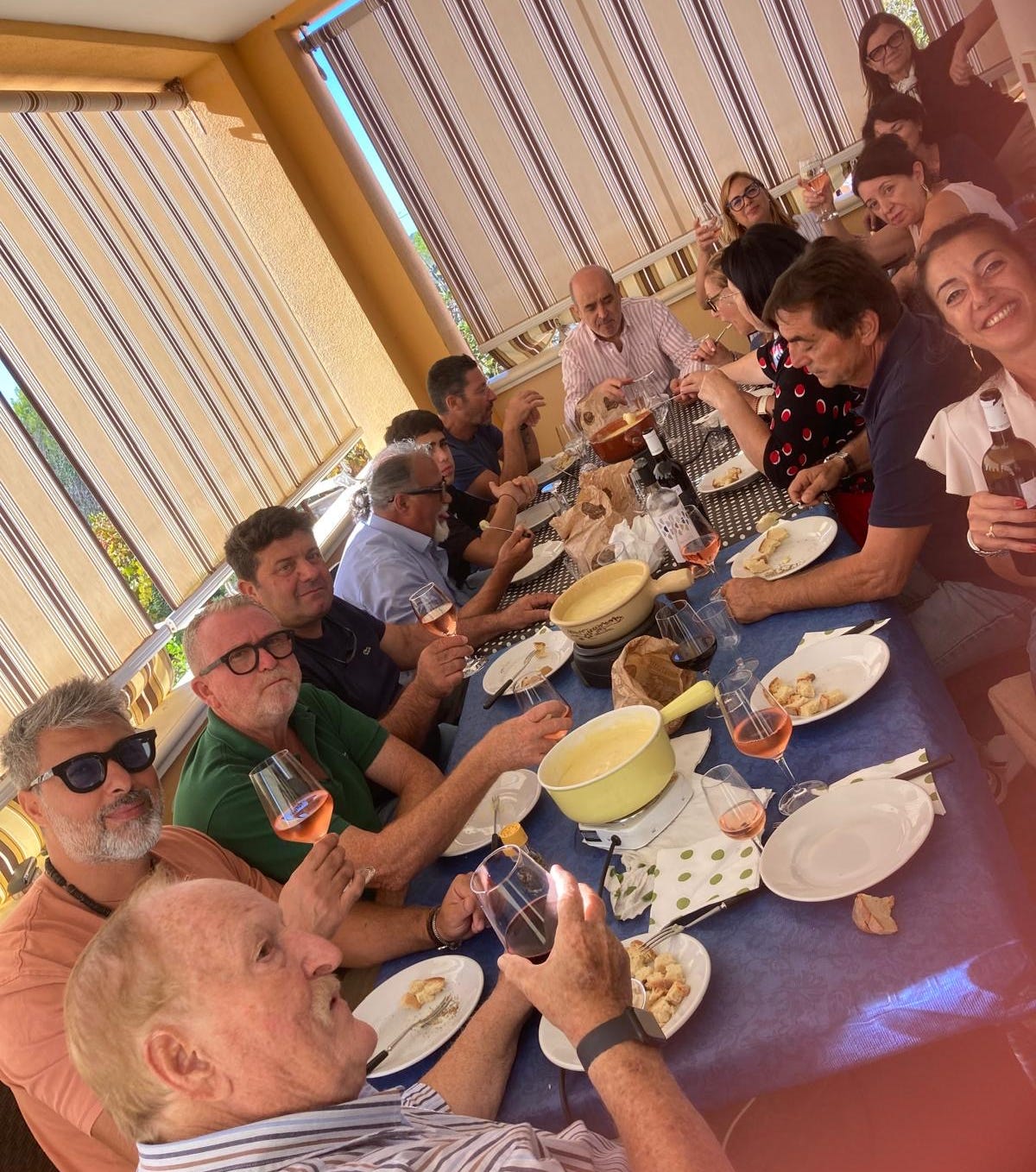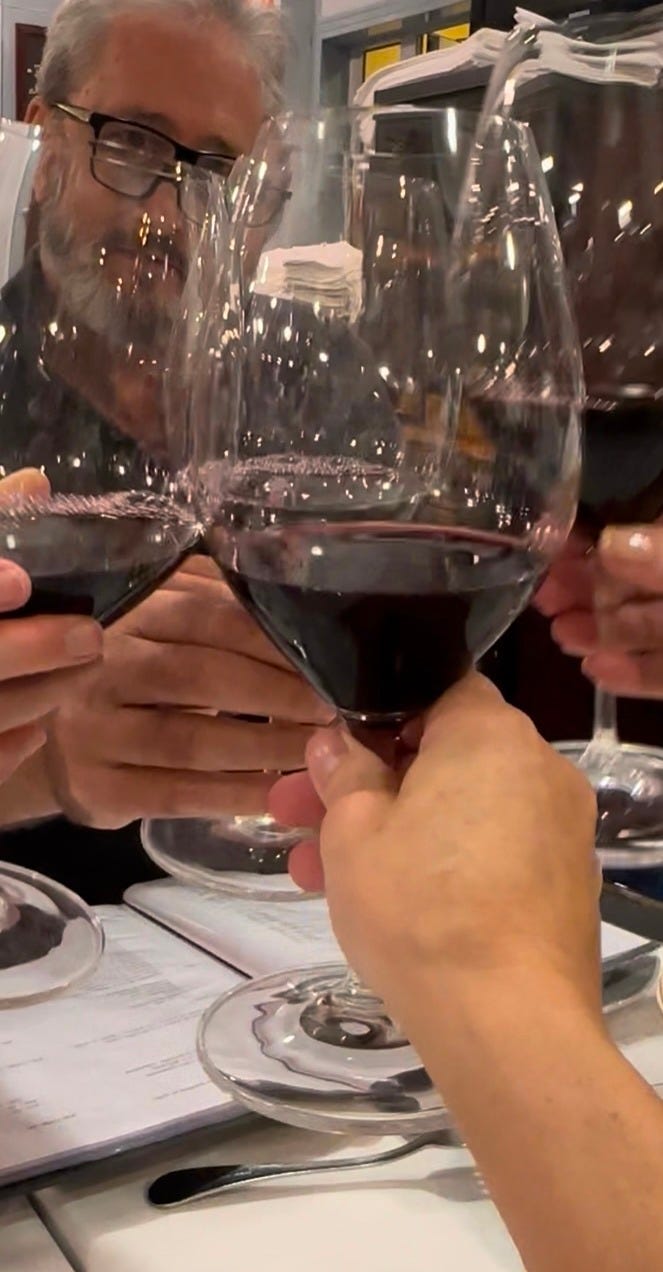This Is Not a Language Lesson
Slow travel, shared laughter, and the kind of fluency you can’t get from Duolingo.
Right now, we’re in Ireland — where I technically speak the language, but still have to work harder to follow a casual conversation than I ever did in Italy, Spain, or France.
I made a new friend here, and I have to fully concentrate just to have a chat with him.
I stare so deeply into his eyes you’d think I was trying to read his soul — when really I’m just trying to figure out if he said “boat” or “goat.”

That’s the thing about slow travel: sometimes the hardest conversations happen in the places where you technically speak the same language.
“Language is a city to the building of which every human being brought a stone.”
— Ralph Waldo Emerson
I’m not bad at languages. I actually love learning them.
But flipping the switch from Croatian to Italian, Spanish to British (yes, that’s a language), then trying to remember your French when you’re tipsy in Antibes?
It’s like juggling accents while blindfolded.
When you slow travel—really slow travel—spending a month or so in each country, something funny happens:
You start to almost get the language.
You can order the cheese, buy the wine, and say “Where’s the bathroom?” with flair.
But the good stuff—the inside jokes, the shared sarcasm, the ability to flirt with language—that takes time.
And one month isn’t quite enough.
So you improvise.
You connect through your eyes.
Through wild gesturing.
Through action, generosity, and a lot of open-hearted guessing.
It’s clumsy.
And also kind of beautiful.
And sometimes, it works better than I ever expect.
In France, I got good enough to make our local barman chuckle at a sarcastic joke. For me, that was fluency — not perfect grammar, but perfect banter.
I’ve learned that language isn’t just about words—it’s about audience.
In Paris, I’ll say “PAH-ree” to locals but “PAR-iss” to English speakers.
It’s not about being right. It’s about being understood.
The code-switching isn’t just linguistic.
It’s emotional.
It’s cultural.
It’s survival, sometimes.
And then there are nights like the one in Marina San Gregorio, Apulia, where no one spoke our language at all.
There I was, just minding my business, drinking an entire bottle of Italian red and watching the sun disappear—when a woman came up to me.
Not to ask if she could take my photo. Nope.
She’d already taken it.
She just wanted to show me the shot.

We didn’t speak the same language, but she smiled and held out her phone. The picture was lovely, actually. She caught me in that golden hour haze—one hand around my glass, one eye on the sea, zero awareness of being seen.
She didn’t speak English. But she spoke French.
And I had the ghost of high school French rattling around in my brain.
By the end of that sunset, she had introduced us to her husband—an intense, magnetic man who promptly invited us to a dinner party the next night (using Italian + French + hand gestures).
We tried to explain we were leaving the area soon.
They suggested we stay in one of their nearby homes.
Cue internal alarm bells.
We politely booked a hotel.
I almost backed out.
But Nigel was feeling adventurous and mildly hungry.
We showed up.
And we weren’t sat at the end of the table like strangers.
We were seated right in the center of a long table filled with close family and friends.
Everyone spoke Italian.
Except for one 13-year-old boy who was studying English in school. He didn’t speak it fluently, but well enough to manage a few brave sentences with us — and to confirm we were, in fact, eating chicken.
It could have been awkward.
But it turned into magic.
By the second course, we were passing around phones with Google Translate like appetizers.
By dessert, we were singing.
By the third bottle of wine, we were dancing.
By the end of the night, we were full—of food, laughter, and a kind of connection that doesn’t need perfect grammar.
I’m still in touch with my sunset photo friend.
She sends me pictures of her garden now, and little messages in French-Italian-emoji shorthand.
And every time, I’m reminded:
You don’t need the right words to belong.
You just need the courage to stay at the table.
Have you ever made a friend in a language you barely speak?
Tell me your story. I’ll be reading with Google Translate and a glass of something red in hand.
Some journeys are best savored slowly, like a good espresso or a glass of vino rosso. If you’d like to keep the stories pouring:




This is really lovely. You're so right about the same language sometimes being more challenging than a different one. My Irish husband and I often find ourselves talking at cross purposes while both "technically speaking the same language" :)
Your sunset photo story reminds me of whenever we visit with the parents of our friend from Spain. They don't speak English, we don't speak Spanish, yet his mom amazes me every time the way she facilitates communication. Through her very expressive gestures, very expressive eyes, and the way she somehow manages to emphasize words that sound close-ish to their English counterparts, we can sometimes have entire conversations without needing her son to step in and translate.
It always feels like such an incredibly generous and giving way to communicate. I often feel like I've had a deeper interaction with her than people I can understand word perfect.
One of the best nights of my life was spent in Golden Gai on New Year’s Eve in a multi-story bar called Albatross with 2 Japanese guys, 2 Australians and my friend Nora. The Japanese guys didn’t speak any English but they did know and love every track on Appetite for Destruction and the English ABC’s song. We danced to Guns N’ Roses, sung the alphabet a thousand times and slurped ramen from each others chop sticks until well after midnight and the Japanese guys paid the bill on the whole bar. That was maybe 12 years ago and no singular night has even come close yet.